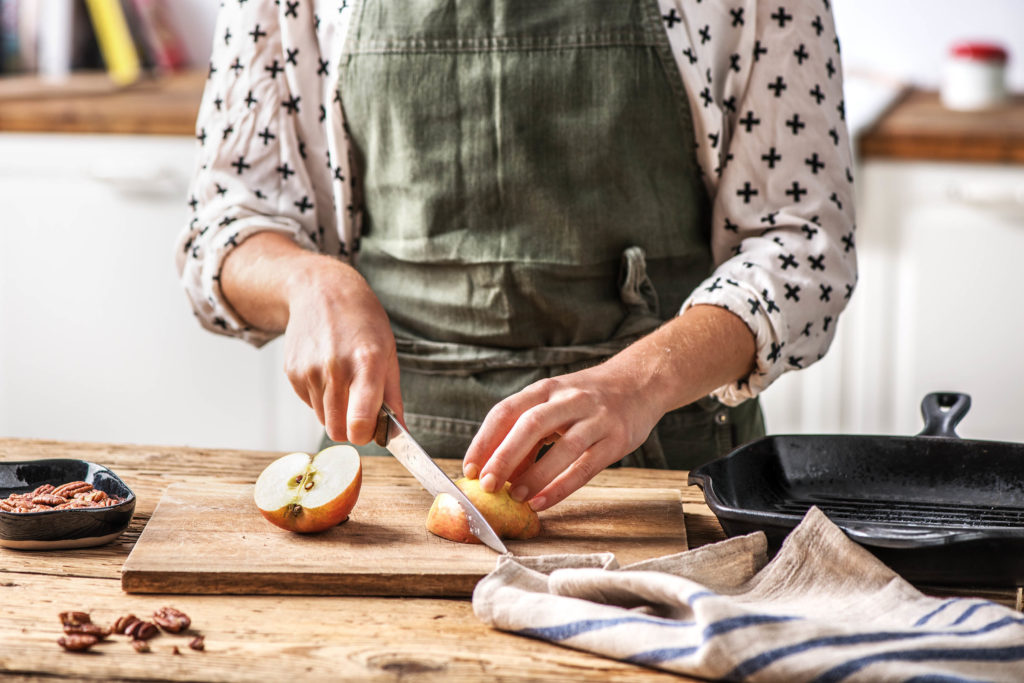Cooking is a life skill that everyone needs to succeed in this world. It allows you to save money, eat healthily, and enjoy good food. However, not everyone knows how to cook or has the time to cook their meals and snacks every day. If you want to learn how to cook, you need to make it your daily habit, like brushing your teeth or eating breakfast. Here are some tips that will help you establish cooking as your daily habit to reap all the benefits of cooking your meals and snacks.
Set a schedule
A major pitfall to healthy eating is that it’s often thought of as a particular activity for just one day of the week: Sunday or cheat day, if you prefer. But cooking your food is an opportunity to kick unhealthy habits and form new ones. Get in touch with your inner home cook by committing to cooking every night for at least one month. Instead of going out on Saturday night and ordering delivery on Sunday morning, consider making chili from scratch on Saturday night that can be eaten during football games on Sunday.
You’re actively engaging in something good for yourself instead of passively watching others do so. However, on heavily busy days, you can always use food delivery that would be delivered right at your front door. The key here is to make sure that whatever schedule you set for yourself doesn’t become another stressor on top of everything else already on your plate. If cooking isn’t realistic for you because of time constraints or other factors, don’t force it – find ways to take care of yourself that are more feasible given your life circumstances. The important thing is taking action!
Choose simple recipes
The idea is to get into the habit of cooking. Don’t worry about good ingredients at first; just try to find something easy.
- Start by choosing quick recipes that don’t require a lot of extra tools or equipment – they can be harder to make excuses for skipping! For example, instead of planning on making a sweet potato frittata with pasture-raised eggs, you might choose to start by simply grilling some veggies or pan-frying a piece of chicken. (Just keep in mind that those simple recipes should still use healthy ingredients!)
- Once you have a few go-to meals under your belt, it will be easier to transition into more complicated dishes.
- As you cook, take notes: You’ll want to note what went well and what didn’t so you can do better next time. If something went well, consider how you could tweak it next time, so it turns out even better. If something didn’t turn out quite right, consider how you could avoid that in future meals.
- Choose one time per week when you spend an hour preparing many meals for the whole week.
- Make cooking a daily habit by setting aside one hour every Sunday night to prepare meals for a whole week. Before you begin, compile a list of your favorite recipes – or find easy, healthy meal ideas in magazines or cookbooks.
The key is to organize food preparation, so it doesn’t take away from time spent with family or friends. Keep your grocery list handy, and check off items as you purchase them! You’ll have fresh ingredients ready on hand when it’s time to cook during busy workweeks. If you don’t feel like cooking after work, you won’t have an excuse!
Add music while you cook
The sounds of cooking can be dull and repetitive. If you like to listen to music while you cook, try putting on an album that matches your mood, whether that’s something fast-paced or mellow, depending on what’s going on in your kitchen at any given time. Many chefs recommend adding music for some extra flavor (pun intended) during meal prep.
Add some tunes while you chop and sauté, and start investing in more music for your playlists if you find yourself enjoying it. It could turn into a new hobby! You may even decide to start a podcast about cooking with friends, featuring different songs each week. And who knows? Maybe you’ll develop a new taste for pop stars when you learn how much they have in common with great chefs.
Always keep veggies and herbs on hand in the fridge/fridge/freezer
Having ingredients on hand that you love, whether fresh vegetables or dry spices, makes cooking more convenient and satisfying. Try keeping carrots, bell peppers, scallions, zucchini, and other vegetables handy in a basket on your countertop. Place herbs such as rosemary, thyme, and parsley in small glass jars with tight-fitting lids. They’ll last longer and make dinnertime feel less last-minute if you have these components prepared ahead of time. Having what you need for dinner ready when you are will help keep cooking a daily habit instead of having it fall by the wayside.
Enjoy the process
The best way to make cooking your daily habit is to enjoy every part. You’ll need to get creative, and as long as you do that, it will be easy to incorporate cooking into your daily routine. Begin by thinking about what you enjoy most in life and how those things can be incorporated into your cooking habits. A day off spent surfing could become an opportunity to make seafood stew; a hobby of playing guitar or reading can quickly become an inspiration for healthy meal preparation; or a passion for photography may lead you to take pictures of your creations, which you can use on social media. Every experience can be enjoyed somehow, if only you think outside of standard routines!
Conclusion
To make cooking a daily habit, you’ll need to find what works. Some people like having things written down and pre-measured, while others prefer just winging and using recipes as guides. No matter what approach works best for you, try making at least one meal each day at home – and challenge yourself to repeat that achievement several times per week. Before long, it will become routine – just like brushing your teeth every morning.








